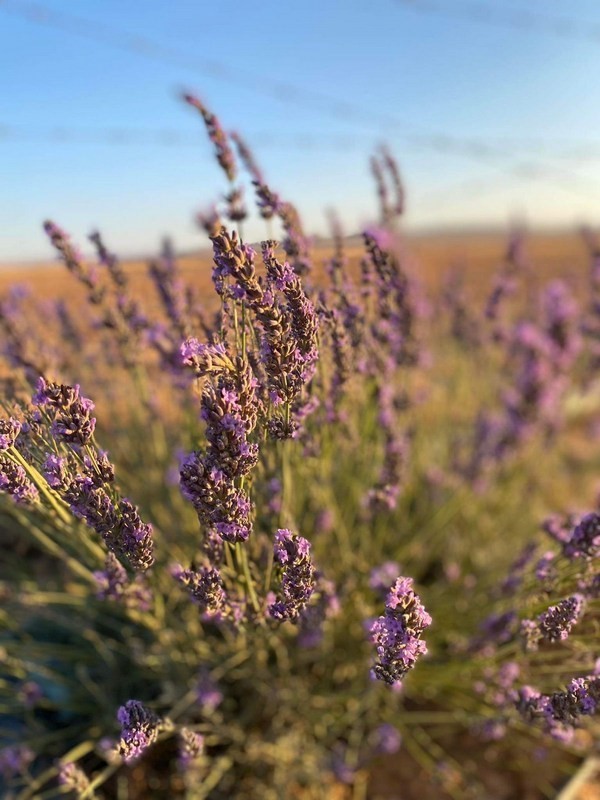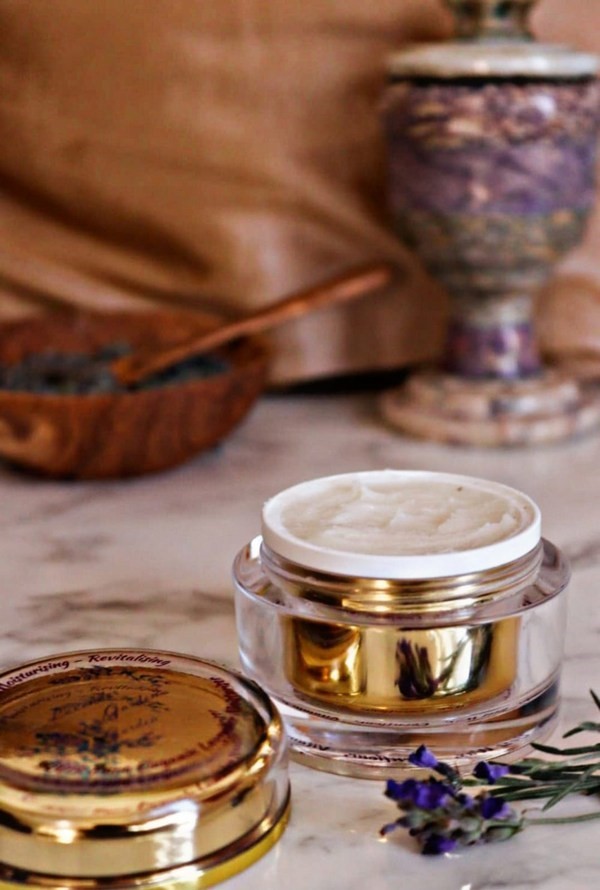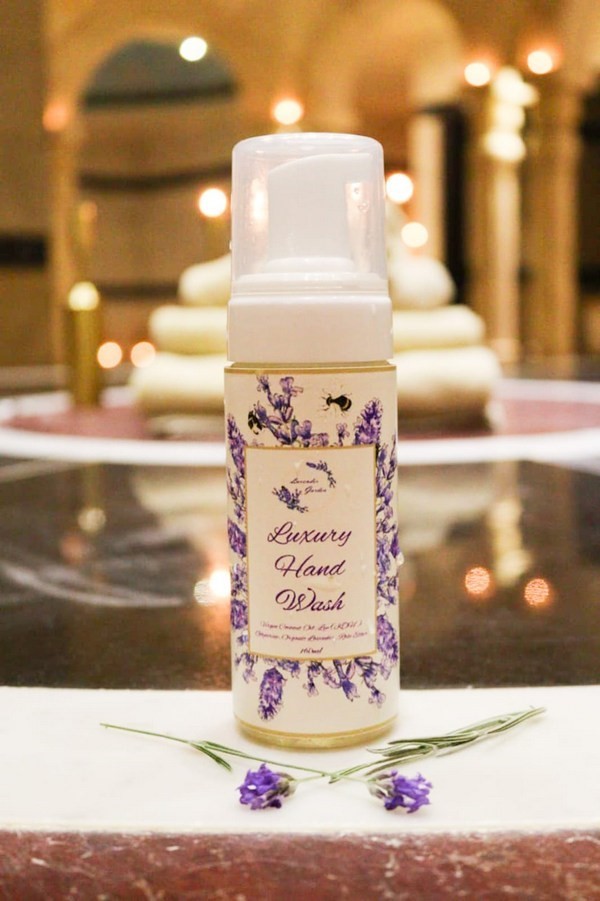The rolling plains between Irbid
and Mafraq burst into bloom in spring 2022. For a few weeks, fields of electric
yellow mustard flowers
attracted tourists from as far as Saudi Arabia to Burayqah.
اضافة اعلان
This August, though, after a
heat wave that brought temperatures cresting 40 degrees Celsius, the same
fields looked parched. As Rasmi Alkharshan approached Burayqah—his home
village—a flock of sheep plodded past his vehicle with a cloud of dust billowing
behind them.
10,000 lavender
plantsWe arrive at Kharshan’s farm, where around
10,000 lavender plants are rooted on the land he and his wife, British native
Ruth Gardner, purchased in 2021. "The
Lavender Garden, Jordan’s first lavender farm, sits inconspicuously
off the highway. In a hot, whipping wind, Kharshan and Gardner walked among
their plants, Angustifolia and Grosso varieties, both averaging a handbreadth
in width.
 The inspiration is
in the olive trees
The inspiration is
in the olive trees
“Farming is one of my nice memories from my childhood,” Kharshan
recalls, “especially with planting our olive trees around the house.” When he
was eight or nine years old, Kharshan’s father gave each of his children a line
of trees to care for. He credits that still-fruitful row of olive trees as one
of the sparks that kept his interest in farming alive, through years of
employment as a paramedic in the civil defense.
Easy to grow in Jordan
When Kharshan and Gardner began to consider what they should plant
on their land, they researched lavender. Lavandula is native to the Mediterranean, hardy, and
drought-resistant once established. “This could be easy to grow in Jordan,”
Kharshan thought. Even before purchasing the land, he had imagined fields of
purple surrounding Burayqah, where historically wheat and barley have been
cultivated.

Currently, between visits to
government ministries in Amman, where he has been pursuing the farm’s organic registration,
Kharshan makes twice-weekly trips to Burayqah. In the meantime, his younger
brother Hashem, a college student, supervises the daily care of the farm,
including irrigation and weeding.
A hope for Jordan’s
agricultural future
Kharshan’s brother embodies part of his hopes for Jordan’s
agricultural future. Though his generation has largely shifted away from
farming, Kharshan envisions government-sponsored programs encouraging Jordanian
youth back toward the land. These programs could launch a new generation of
local farmers, providing irrigation systems suitable for Jordan’s water
concerns and high-tech farming machinery and boosting Jordan’s food security.
“I believe that a passion for farming is coming,” Kharshan says. “I
believe that farming, and agriculture in general, can make and create lots of
jobs in Jordan…especially with the young people who don’t have jobs and don’t
have any skills or education.”
Also, in line with his
vision, Kharshan asked his younger sister Ghadan to join the Lavender Garden
enterprise. Though she is a high school graduate, the young woman is currently
unemployed. She assembles some of the handmade products her brother plans to
market through Instagram and Facebook—including lip balm, hand wash, eyebrow styling wax,
and moisturizer. She even developed a lavender- and rosemary-infused hair
treatment, made with olive oil from the same trees her older siblings tended as
kids.
In Kharshan’s mother’s home, Gardner described how lavender is a natural, effective mosquito repellent. Her mother-in-law has three bundles of flowers hanging above her bed. “There are no bugs!” Um Shalal said proudly.
Upstairs, Gardner shined her mobile phone flashlight on some of
June’s lavender harvest. Around 150 bundles of Grosso hung from lines strung
across the room. Beneath them lay an orange tarp to catch bits of dried
flowers. Downstairs, a delicate pile of Angustifolia blooms lay wrapped in a
white sheet.
The IKEA effect
Each blossom is precious, infused with value because of the labor that
went into growing it. Kharshan calls this “the IKEA effect”; when you build
something with your own hands, he says, its worth increases in your eyes. He
tries to capture the farmer’s experience in words.

“You plant this plant—a seed or a little seedling,” he explains.
“Then you watch it, like your kids or your baby growing. You look after it. You
check it every couple of days—and then you see this field that was empty, now
full of plants.”
Read more Business
Jordan News



